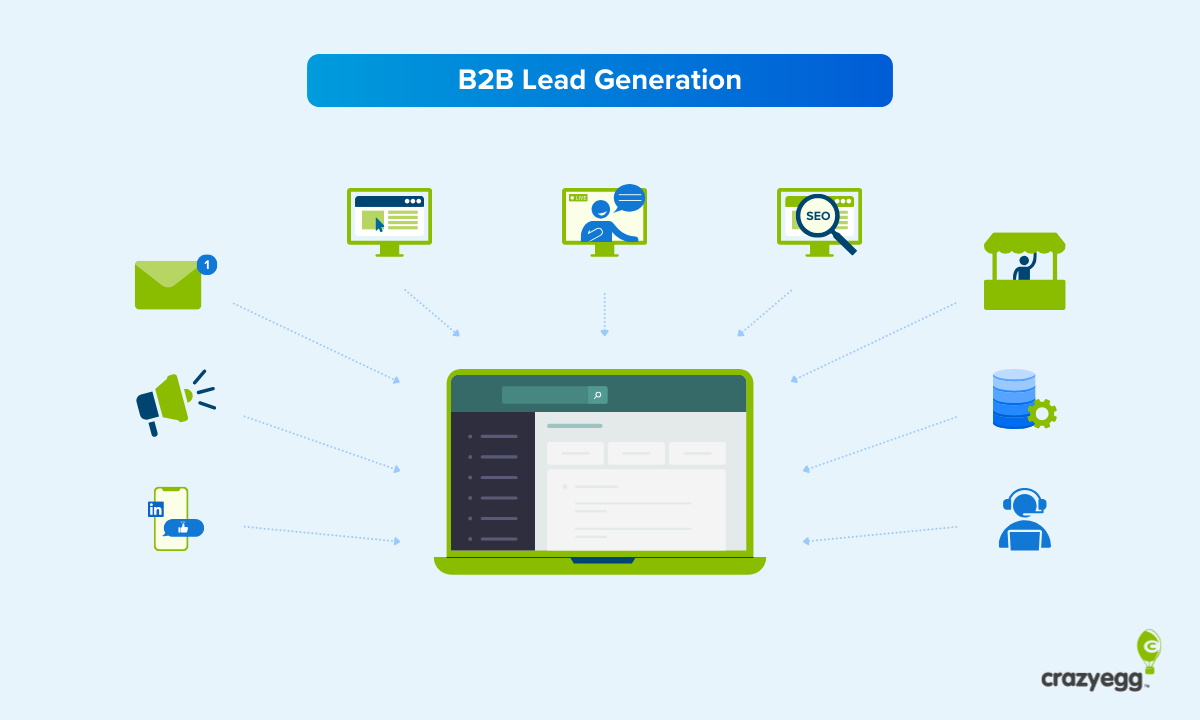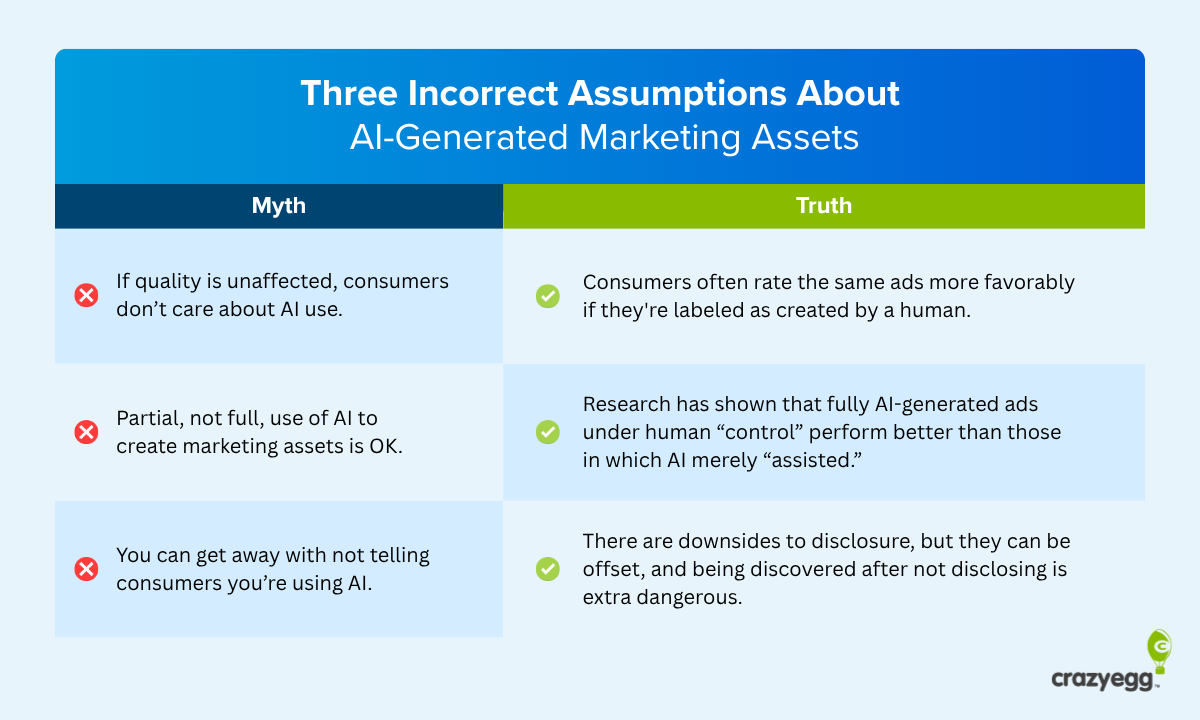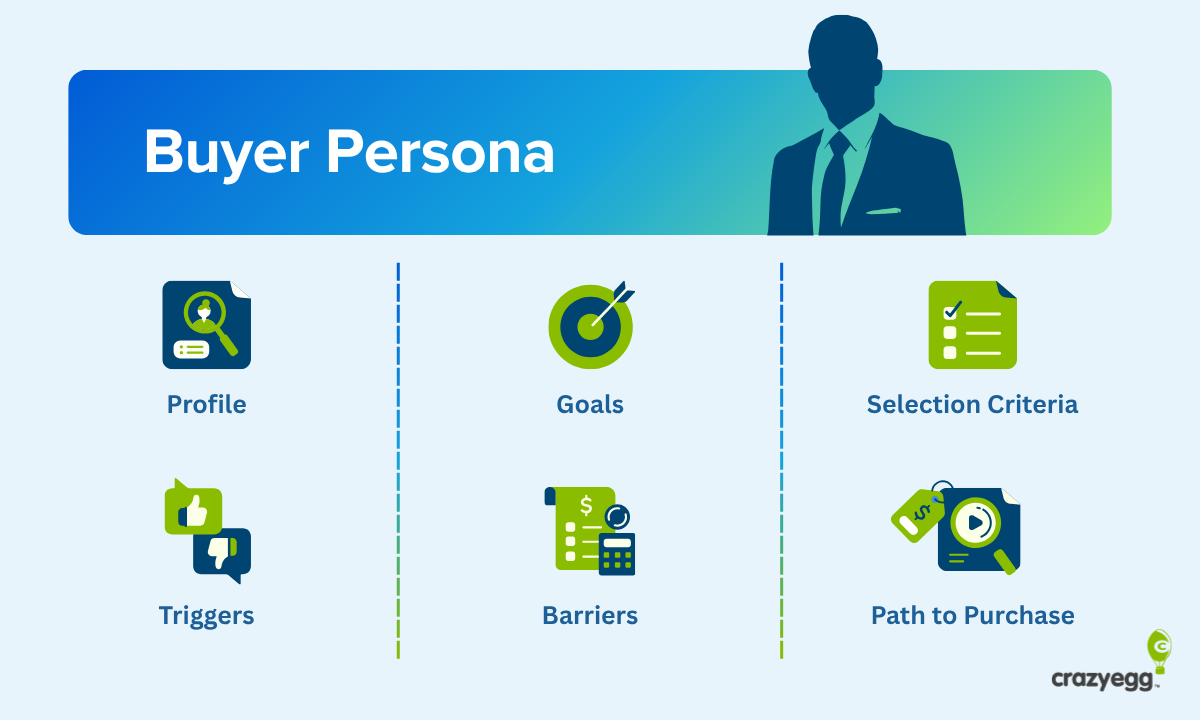Most marketers have written off Quora. Big mistake, especially since Quora is one of the top-cited websites in Google AI Overviews.
While everyone’s fighting for overpriced clicks, Quora’s delivering more and more curious, high-intent buyers who actually read. They’re already asking the questions your landing pages try to answer.
Here’s how to use that behavior to reach the right customers before your competitors do.
What Is Quora Marketing?
Quora marketing means using the popular question-and-answer platform to reach potential customers, build credibility, and show real expertise. Quora is part social network, part knowledge base, and increasingly part of how AI systems learn about your brand.
What makes Quora different is intent. Unlike other social networks, the typical user isn’t there to scroll or kill time.
They are logging on with specific questions they want answered. They’re comparing products, troubleshooting problems, or looking for ideas they can trust.
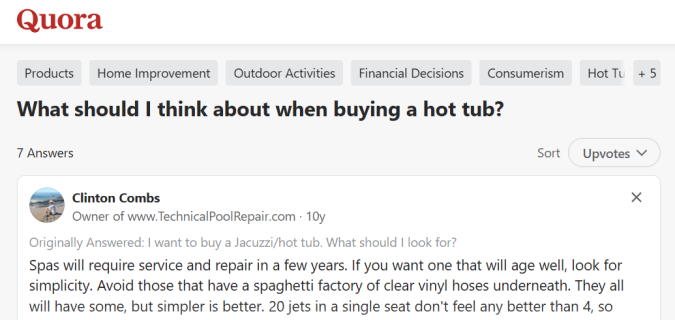
For marketers, this makes Quora one of the few platforms where content and customer intent align. A good answer can earn the same kind of attention a high-ranking blog post would, but faster, because it lives inside a trusted community where readers expect substance.
It’s also a listening post where marketers can pick up useful intelligence on their target market. Following topics in your niche lets you see what your audience actually asks, the words they use, and the gaps your product or content can fill.
How does Quora marketing work?
The basic idea is that you can post from a Quora account like a regular user and build visibility for your brand by interacting on the platform. You can also buy ads or pay to promote the answers you have written.
Both methods enable you to place your brand in front of an audience that’s trying to educate themselves.
Here’s how a typical customer journey plays out:
- Someone has a problem or question related to what you sell.
- They search Google, Bing, or go to Quora directly.
- They find a page full of ranked answers to that question.
- Your brand shows up: as a helpful answer, a Promoted Answer, or even a mention from another user.
- Some click through to your site from a link in your answer or Quora profile. Others may remember your brand for later.
That’s the key: Quora marketing speaks to people while they’re in research mode.
Some are at the top of the funnel, learning what solutions exist. Others are mid-journey, evaluating products, or trying to understand the difference between a few different options.
Either way, they’re in decision-making mode, which you cannot say about 𝕏, Facebook, Reddit, or any of the other seemingly similar platforms.
Connecting with a high-intent audience
Quora’s reach is incredible. When I checked SEMRush, I found that Quora has more than 410 million monthly organic visitors.
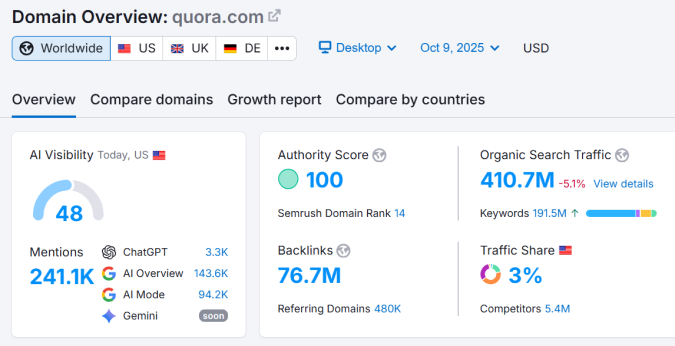
And its keyword footprint is massive.
I found various statistics indicating that Quora ranks on the first page of Google for 5 million different searches, though SEMRush indicated the number was far higher:
This shows that Quora ranks for well over 191 million keywords, with 3 million results in the top three slots, and 18.7 million results in the top ten.
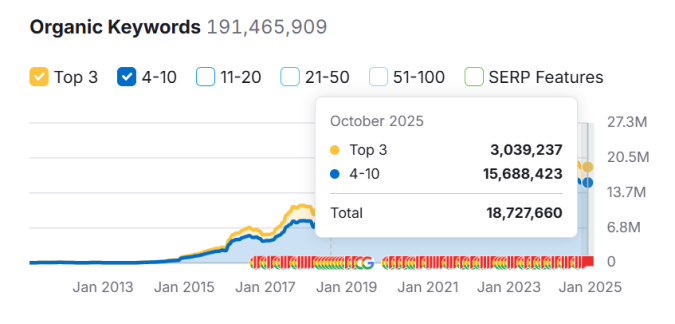
The most important factor, at least in the current moment, is that Quora is one of the most-cited domains in Google’s AI Overviews, meaning your content can show up not just on Quora, but in AI-generated answers across Google, Bing, ChatGPT, and Perplexity.
While everyone else tries to divine the tactics it takes to show up in AI overviews (which are dominating organic search), you could be the one using Quora to shortcut directly to the top of search results.
Drawbacks to marketing on Quora
It’s not magic, and it’s certainly not without its flaws. Here are some of the important trade-offs to consider:
- Strict moderation. Overly promotional answers or spammy links get flagged fast. Many marketers wind up getting banned before they understand how to play the game.
- Limited scale. You won’t get the same volume you get marketing with Google or Meta.
- Patience required. Building a credible Quora profile takes time, and organic results can take months to build traction.
- Questionable content. Like other platforms, Quora struggles with moderation, and there is a ton of explicit content and spam.
- Unclear algorithm. Sometimes great answers don’t get surfaced, and that’s part of the game.
How to Reach Your Audience on Quora
There are a few different ways to use Quora to raise awareness about your brand and get in front of the platform’s high-intent audience.
Organic methods
Answer from a business or personal profile. You create a Quora account to answer questions that are related to your brand, your vertical, and what you believe your target audience really cares about.
The key to this strategy is to share real insights with other users. By providing valuable, in-depth answers, you can help real people and establish your brand as a credible expert in the space.
This strategy is NOT turning your answers into sales pitches for your product. Quora has strict policies against doing that, and regular Quora users hate brands that are trying to use their platform to hawk their products.
Curate a Quora Space. You create a Space (similar to a subreddit or Facebook Group) that functions as a hub that showcases your best answers, FAQs, and thought leadership content.
With Spaces, most brands center around a topic that is related to their product, rather than the product itself. In the ideal situation, a brand’s Space allows them to connect with users who are likely in their target audience and build out a rich content hub on Quora’s authoritative, highly-discoverable domain..
Paid methods
Run ad campaigns. You can use Quora Manager to create ads and get them in front of your target audience. You can run text, image, video, and app install ads, and control who sees your ads with Quora’s rich set of targeting tools.
Promote your answers. You write a normal answer and then pay to have it shown within topic feeds and relevant question threads.
For both of these methods, you can use Quora Lead Gen Forms to capture a user’s contact information without making them leave the site.
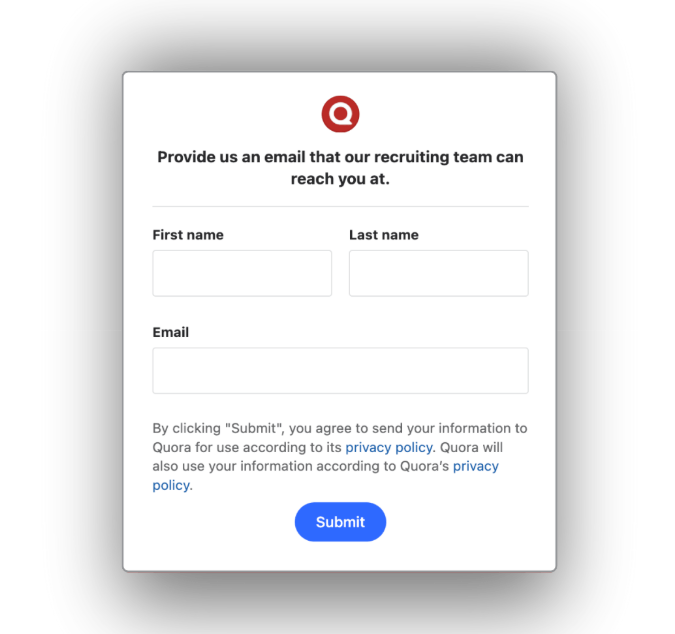
This reduces uncertainty and friction for users that might not want to click through to your website, and should help you generate more leads on Quora.
Gray area and black hat methods
There are a number of ways to game the system, such as:
- Coordinating with other Quora accounts to promote your brand
- Creating multiple accounts to to upvote your content (sock puppeting)
- Keyword stuffing answers to increase SEO
- Engaging in link exchanges or other backlink schemes
I recommend avoiding all of these methods. I mention it here because I have seen other sites promoting these as legitimate tactics, which can 100% get your account banned and damage your brand’s reputation.
Some agencies specialize in “Quora marketing services” that involve using networks of high-visibility accounts to promote brands. Depending on how these tactics are executed, they could easily violate Quora’s Terms of Service and get your account banned.
Quora is strict about promotional behavior and quick to remove users who break the rules. If you’re considering working with an agency, make sure they’re using legitimate methods (writing genuine answers, running approved ads) rather than manipulative tactics that could backfire.
The safest and most sustainable approach is to focus on creating genuinely helpful content and enticing advertisements.
Is Quora Marketing Viable for My Business?
Great question, and you should answer it fully before you commit any resources to marketing on Quora.
If you can answer yes to most or all of the following questions, then Quora marketing is likely viable:
- Are there active Quora topics in your niche?
- Do your competitors have valuable backlinks from Quora?
- Are you seeing Quora answers ranking highly for search queries you care about?
- Are specialists in your niche posting on Quora regularly?
- Are your competitors and brands in your space buying ads on Quora?
Some of these questions you can answer with a little bit of research on Quora, but you will definitely need to use good SEO tools in order to analyze backlinks and search volume.
By answering these questions you will have a good sense of the kind of momentum that exists in your niche on Quora. You’ll be able to anticipate the size of the audience you can win and how saturated this channel is already.
You really have to go in and investigate the situation for your specific niche. Some topics on Quora are bursting with activity. Others are dead and have been so for several years.
If you answer no to some of these questions, Quora marketing may still be possible, but it will take longer to get going, and there may not be much potential traffic to win, even if you succeed.
5 New Ideas for Quora Marketing
The platform has changed considerably in the last few years, and many marketers haven’t caught up yet. Here are five fresh ideas to use Quora effectively to get in front of new customers and build your brand’s reputation.
1. Write for visibility in AI Search
Quora is one of the most-cited websites in Google’s AI Overviews. This is important because these short AI-driven summaries are where lots of the clicks and engagement are going. According to Google, AI in Search is driving more queries and higher quality clicks, and Quora could be your ticket to capitalizing on this new trend.
This means that when you post content on Quora, there’s a decent chance it will show up in AI Overviews.
To me, it makes sense that AI systems love Quora content. It’s basically a giant site full of answers to niche questions that nobody else has yet to ask. As the LLMs that power Gemini and Bing Generative Search scour the web for information to serve users who have questions, Quora is a logical and comprehensive source to cite.
I think it makes sense to lean into this trend, and structure your answers on Quora so that they have as good a chance of getting served in AI overviews as possible.
Here are some tips based on what I’ve seen:
- Start sections with a clear definition or direct answer. A traditional “hook” that you would use to interest a human reader could easily confuse an AI model.
- Make paragraphs easily extractable. You want to create 3-5 sentence chunks of text that the AI can lift and share, which do not require a ton of extra context to understand. In other words, write paragraphs that are self-contained.
- Write the way AI models summarize. Typically what you see in an AI overview follows this pattern: answer > explain > example > takeaway. This is not a structure that ought to bother human readers at all.
- Focus on semantic search over keyword search. Unlike traditional SEO, AI models look for meaning in text vs keywords. If you can understand how semantic search works, you can write in a way that is easier for AI models to process, understand, and summarize.
- Use specific, verifiable details. AI models tend to prefer writing that is grounded with examples, data, and brand names that it recognizes. If you cite a study or data, be sure to attribute the source directly.
- Structure your writing for question matching. Quora’s Q&A format is already set up for this, but consider including sub headers or stand alone sentences that pose and answer questions throughout your content.
The basic gist of all of this is that you should write in a way that can be quoted out of context. AI models look for short, complete paragraphs that make sense on their own.
Of course, you have to balance the needs of AI-models with human readers. Already I have seen a lot of clear copypasta from ChatGPT into Quora, and those answers are not getting upvotes.
This is very doable. With a little thought, you can write answers that satisfy humans and AI models. Ask yourself: if Google Gemini quoted this one paragraph, would it make sense? If yes, you’re in good shape.
2. Create a knowledge base with Quora spaces
Quora ended monetization for Spaces in late 2024, which is actually good news for marketers. It removed the ads and clutter, turning Spaces back into what they were meant to be: clean, organized hubs for useful content.
Think of a Space as a living FAQ or resource library hosted on a domain that already has serious SEO authority. Brands can use Quora Spaces to:
- Answer recurring customer questions once, not fifty times
- Group your best educational answers in one place
- Collect insights on a broader topic that connects to your brand
You probably already have customer support content on your site, potentially even a full knowledge base. A Quora space doesn’t replace that, but it can enhance the discoverability of your educational content.
For example, someone trying to solve an issue with one of your competitors’ products could easily surface a similar Q&A style content about your product on Quora. And once they are in your space, they will see tons of additional relevant information.
To create an effective Quora Space for marketing, pick a theme that’s bigger than your product. Ideally, it should be a topic that has a healthy amount of search traffic and activity on Quora already.
If you sell project management software, for example, you could create a Space about remote team workflows. There, you would post 10–15 of your best answers, adding context and links between related topics.
You could talk about tools, communication, and habits. Mention your product naturally when it fits, and don’t focus on selling anything. 99% of the time, people are not on Quora to shop. They are there to learn, and you can earn their trust and respect by helping them out.
3. Conduct market research
Quora is a goldmine for market research. People tell you exactly what they’re confused about. You can use that information to shape both your content and your product messaging.
Step one is to listen. Follow topics related to your product category. Watch what people ask. You’ll start seeing patterns:
- What problems frustrate your audience most.
- What features they wish existed.
- What misconceptions they have about the product category.
- How they describe their challenges in their own words.
You can get some insights into these questions with basic market and keyword research, but the questions people post on Quora lead to threads with a lot more context. You’ll see conflicting perspectives and new ideas that are impossible to find anywhere else.
There is another step you could take, where you actually start to test different messaging strategies as you respond to similar questions to see what resonates most with Quora audiences.
It’s not a statistically sound way to conduct research, but it costs next to nothing to switch up your messaging strategy on Quora. You’ll get feedback on your new positioning or angle based on upvotes and engagement.
When your new ideas work on Quora, it will probably work well on a landing page or in your ad copy.
4. Establish executives as thought leaders
Executives struggle with social media because most platforms reward snappy takes over real insight. Quora flips that. It rewards depth, thoughtfulness, and firsthand experience.
People want to hear from founders, CEOs, and business owners. Brand accounts don’t exactly scratch the itch. When DuckDuckGo’s CEO answered a question comparing his product to Google, it got six nearly million views with a 9.34% click through rate.
No ad spend. Just honesty and clarity.
That’s what works on Quora, which makes it a great venue for your executives to start establishing themselves as thought leaders in your space.
I think 𝕏 (fka: Twitter) and Facebook are great platforms, but I do not think your average user is going to either platform with the intention of learning.
With Quora, that’s the driving reason that most people are on the site. They are hungry to hear from people with real experience, like your CEO, founder, etc.
Here’s what to write about:
- Problems you’ve solved.
- Decisions you made and what you learned.
- Mistakes that taught you something.
- Trends you see from your side of the business.
Here’s what I would avoid doing:
- Write like a press release.
- Plug your product every time.
- Stray outside your expertise.
For example, a typically bad post from an executive on Quora might start off with, “At [Company], we leverage cutting-edge AI to revolutionize productivity.”
First of all, the words “leverage” and “revolutionize” instantly call to mind marketing-speak, which is at odds with the community of users on Quora. They are not there to buy things.
An example of a good way to start off would be “We tried this feature three times before it worked. Here’s what we learned each time.”
The second example feels human, like an answer that you might actually write to someone with a real question. It’s also framed as “here’s what we did,” which could be helpful for another Quora user, instead of the “here’s how great we are” framing in the first example, which offers nothing of value to anyone else.
One word of caution: no one is going to believe that the CEO of a busy company is posting everyday and responding immediately to questions. I’d recommend picking one question a week to answer at most (at least with your CEO/founder’s Quora profile), which is believable.
5. Take advantage of new targeting capabilities
Quora has always been excellent at topic-level targeting, like finding people who are interested in CRM software, freight brokering, or acrylic painting. Today, Quora connects with data partners like Bombora and LiveRamp, which give marketers access to richer audience insights and better targeting options.
You can now reach people based on the companies they work for, the tools they’re researching, or the industries they influence.
For B2B marketers, this is a godsend, because it moves Quora from a general-interest site to a place where you can reach the people who actually fit your ideal customer profile.
Think of it as combining LinkedIn-level precision with Quora’s built-in trust. When someone’s reading an answer about “best CRM for mid-size teams,” and your promoted post appears below it, that’s prime real estate.
LiveRamp and Bombora are just two of a growing number of Quora API partners that can help you get in front of people in your target market. For B2B and ABM, I think these integrations (or something similar) is an absolute must-have for marketing on Quora.
Quora Marketing Best Practices
These are the tried-and-true tactics that worked in the past and still work today. There’s nothing flashy or novel in this section, just the basics that separate the accounts people trust from the ones they ignore.
- Know the rules. I would read and understand Quora’s Platform Policies. This is the best way to ensure that your marketing efforts are not seen as spam or misrepresentation.
- Be consistent. Post regularly, answer questions thoughtfully, and engage with comments. Activity builds visibility. Upvoting and following relevant threads keeps your profile circulating in topic feeds.
- Pick questions that already have traction. Focus on those with strong follower counts or that rank in Google. You’ll get far more exposure answering a question that’s already attracting readers than one that’s sitting empty.
- Keep your best answers current. Update stats, examples, or screenshots so they don’t look dated. Quora rewards freshness. Updated answers can climb back to the top.
- Avoid duplicate content. Every answer should be unique to the question. Copy-pasting the same content across threads is a fast way to get flagged or shadowbanned.
- Track your performance. Use the Quora for Business dashboard to monitor impressions, clicks, and conversions. Export that data and compare it with results from other marketing channels to see how Quora traffic performs relative to other channels.
- Target smart topics. Choose subjects that get steady search volume on both Quora and Google. That’s how your answers end up visible in two places instead of one.
- Link strategically. It’s fine to include links, but only when they genuinely help the reader. Think of links as part of the customer journey, not a shortcut to your site. Overlinking looks desperate and is one of the fastest ways to get your account flagged.
- Answer long-tail or technical questions. These are less competitive and tend to attract serious readers. You’ll get fewer views and clicks, but they tend to have higher intent, which you should see reflected in the conversion rate.
- Repurpose strong content. Review old blog posts, whitepapers, or social posts and see where they could fill a gap on Quora. This is quicker than starting from scratch, and tends to lead to better quality content than a rushed answer.
- Refresh old high-ranking threads. If a popular question in your niche has weak or outdated answers, jump in. Add something genuinely useful and you can outrank older posts quickly.
Setting Up Quora Marketing
The basic goal in this section is to create a credible Quora account where you can start to gain visibility with an audience of potential customers.
- Create an account
- Create a Quora Ads account (optional)
- Follow topics and spaces
- Respond to questions
I’ll go through each step and share some tips along the way.
1. Create a Quora account
The first step is deciding who you want the face of your brand to be on Quora. I would aim to pick someone whose role and experience would make them viewed as an expert by your target audience.
The CEO/founder is an obvious choice, but potentially a Sr. Engineer or sales leader might resonate more with the users you are trying to reach.
The next step is creating an individual account on Quora. It’s very straightforward. All it takes is an email address.
Once your account is set up, you’ll select a list of topics to start your feed off. Pick ones that you believe align with the interests of your brand and your target audience. You will always be able to adjust and refine these over time.
Next, fill out your Quora profile, which includes all of the standard elements, like a Name, title/role, headshot, and a short description of yourself.
Quora also lets you add credentials like education, work experience, certifications, and areas of expertise. Fill these out completely. They serve two purposes: they establish your credibility when people see your answers, and they help Quora suggest relevant questions for you to answer.
Here’s a few tips for creating a Quora profile:
- A friendly, high-quality profile picture is a must. I would make the background a bright, appealing color so that your thumbnail image stands out in threads.
- Include your brand or company in the profile credentials section so that it is visible in threads. This way, you are not relying on people clicking through to your profile to see your brand.
- Your description should feel like it was written by a human. Communicate the key information you want to establish yourself as a credible, knowledgeable player in your space, but have a little fun with it.
- Include 1-2 links out to your website, LinkedIn Profile, or landing page in your description. Don’t overload the description with promotional links.
- Look at the profiles of high-performing users in the topics you care about to get a sense of the norms for your particular community.
Great. You are all set to start interacting on Quora and connecting with potential customers.
2. Create a Quora Ads account (optional)
If you plan on advertising or promoting your posts on Quora, you will need a Quora Ads account, which you can create once you have set up your regular Quora account. If not, don’t worry about this and skip to the next step.
Once you have set up Quora Ads, you will be able to create a Business Profile and launch ad campaigns.
A Business Profile on Quora differs from an individual user profile in that it represents an organization rather than a single person. Unlike individual accounts, it can be managed by multiple team members, which is very useful.
There are also a few trust signals that personal accounts do not get, such as the small business icon and company location, which both build credibility and convey that this is an official brand account.
Just note that you do not need a Business Profile or Ads account to start using Quora for organic marketing.
3. Explore topics and Spaces
Quora is divided into Topics, which are an area of interest, and Spaces, which are groups that are focused on a topic or cluster of topics.
I would just type your vertical into the search bar to get started. See what the largest and most active spaces are, and start joining or following the ones you think have the most relevant audience.
Once you have engaged a little bit with the platform, Quora will start making recommendations for different spaces to follow and questions to answer. It will also start loading your feed with questions and threads based on your interests.
4. Respond to questions and engage
By this point, you have probably started to find questions that are relevant to your brand and its audience of potential customers. It’s time to join the discussion.
The most effective questions to answer:
- Are relatively recent (minutes, hours, or days old)
- Have lots of people following the question
- Have only a few answers or low-quality answers
You can try to add some fresh wisdom to a popular question from 4 years ago, but it is going to be difficult for your answer to be seen if there are already dozens of good, high-quality answers from trusted users.
Ideally, you can find questions to answer in areas where you are knowledgeable and passionate. That’s going to make it easier for you to craft a comprehensive, useful answer.
Some other things to thinking about as you write:
- Be direct, friendly, respectful, and concise.
- Offer real value by fully answering the question.
- On competitive posts with lots of good answers already, start by saying something that goes against the grain. A fresh perspective is enticing.
- Images, GIFs, and videos drive engagement, so you should look for opportunities to include them where it will add value.
- Only link out to your site where it is directly relevant, and only AFTER answering the question and providing value to the reader. You do not always have to link to a landing page, sometimes a more relevant blog post is ideal.
Not every answer needs a link, and many marketers have been banned from Quora over the years because they promoted their brand (or their clients) without providing any meaningful value.
Yes, you are trying to drive traffic from Quora to your site, but you are also trying to build your brand’s reputation. Do you want to be seen as a thought leader or a shameless promoter?
If you focus on providing valuable answers, your answers will get upvotes, which increases your visibility and makes your Quora profile look established.
Connecting Quora to Your Website Funnel
Getting attention on Quora is great, but it’s just the first step. There’s no profit to be had from racking up views and upvotes. What everyone wants is new sales and customers, and to do that, you have to connect your Quora activity to the rest of your website funnel in a way that feels natural and valuable, not forced.
Start by thinking about the customer journey. People on Quora are usually early in the buying process. They’re researching, comparing, or just trying to make sense of a topic.
When they click from your answer to your website, they’re often not ready to buy yet, so linking directly to a salesy landing page isn’t always the right move.
But they are primed to learn more. That’s why your next step should be to meet them where they are with useful, low-pressure content. One of the easiest ways to do that is by linking to educational blog posts.
Blog posts feel safer and relevant when they continue the conversation you started on Quora. That’s providing real value to readers. Of course, inside those posts, you should:
- Add opt-in popups to collect contact information using a lead magnet like a free checklist, guide, or calculator.
- Use internal links to lead visitors toward content that’s lower in the funnel, like case studies, demos, or pricing.
Ideally, your answers in Quora match the tone and voice of the blog post you are linking to. It makes it easier for a customer to continue reading your content.
To make sure all this effort ties back to results, you’ll need to think about attribution. The most common way is to use UTM parameters on every link from Quora to your site so analytics platforms can track where that traffic comes from. Quora Ads lets you export campaign data, which you can match up with your Google Analytics 4 to get a clear picture of ROI.
Now, not everyone who visits your site is going to convert, at least not on the first visit. But you can retarget people who clicked from your Quora answers but didn’t fill out a form.
Get as specific as possible here: if someone clicked on an answer about “best payroll tools for small business,” show them ads or content tailored to that topic later.
Use tools like Crazy Egg to see how Quora visitors actually behave once they arrive on your site. Do they scroll? Do they click? Do they have a high bounce rate compared to traffic from other sources?
Those patterns can show you exactly where your Quora marketing efforts are leading to conversions, and where they are falling flat. You can also learn what users find most/least engaging, which can help you prioritize the right questions and topics moving forward.



